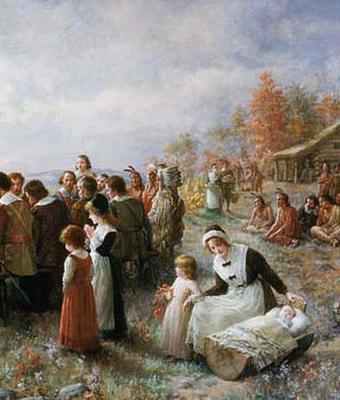The notorious Proverbs 31 woman is who Christian men desire. They want a woman that is industrious, teachable, practical, and has her family her main objective. In my opinion, my wife is a great example of the Proverbs 31 woman. She keeps a very clean house, she works from the home, she raises two children. (And does not stick them in playpens to fend for themselves).
Below is an article by Geoff Thomas. He gives a balanced view of what biblical submission looks like...Even in the 21st century.

The word of God says, "Wives, submit to your husbands as to the Lord. For the husband is the head of the wife as Christ is the head of the church, his body, of which he is the Saviour. Now as the church submits to Christ, so also wives should submit to their husbands in everything." (vv.22-24). There is no difficulty in understanding what Paul is saying. He makes it very clear.
Is this concept found just here? Was it a problem of the rebellious wives of Ephesus, just a local congregational concern? No. We turn to Colossians 3:18 and read "Wives, submit to your husbands, as is fitting in the Lord." Or again in I Corinthians 11:3 "Now I want you to realize that the head of every man is Christ, and the head of the woman is man, and the head of Christ is God." Or Titus 2:4 and 5, "train the younger women to love their husbands and children, to be self-controlled and pure, to be busy at home, to be kind, and to be subject to their husbands, so that no one will malign the word of God." You might argue that Paul is speaking here to a husband and wife who are both Christians. This wife is being loved by her husband as Christ loves the church. This husband would lay down his life for his wife. However, the Bible won't allow you to escape from submission to your unbelieving husband by that argument. Peter is speaking in his first letter, chapter 3 to wives who have been converted and their husbands have not, and he says to them in the opening two verses, "Wives, in the same way be submissive to your husbands so that, if any of them do not believe the word, they may be won over without words by the behaviour of their wives, when they see the purity and reverence of your lives." So the sentiment of our text, that a wife is to submit to her husband, is found throughout the Spirit-breathed New Testament. It is not a curious message found in just one place - like the phrase in the letter to the Corinthians of being baptized for the dead, whatever the correct meaning of that may be. So rejection of this word by those who claim to reverence the Lord Christ, is plain disobedience. What does a wife's submission to her husband entail?
i] It is the submission of a woman created by God in his own image, who is equal to her husband in dignity and value.
She is not below her husband at all; she is not even just a little below him. Men and women are equal in created dignity, and equal in natural depravity and equal in redemptive privilege. The wife has a spiritual nature and may love God more than her husband; she has a sharp mind and may have a better academic record than her husband; she has a sense of beauty which may be more refined than her husband; if her husband suffers physical decline she may be even physically stronger and tougher than her husband. She too has the same calling that he has to labour six days, to replenish and subdue the earth.Sometimes it's tempting to exaggerate differences between men and women and say, as one author does, "Men are from Mars, women are from Venus." But the Bible puts our feet firmly on earth. When Adam first saw Eve, he didn't say, "What planet did this come from?" He said, "This is bone of my bones and flesh of my flesh." He knew he was looking at his other half. Not only were Adam and Eve from the same planet, they were even from the same body. God made Adam from dust, but he didn't make Eve from a separate and independent bit of dust. He made Eve from a part of Adam. Where did God get the part of the man that he fashioned into the woman? Not from his head, as though she would be superior to him; and not from his feet, as though she would be inferior; but from his side, to be his companion and equal. When Adam first met Eve, he didn't say, "Oh good! At last I've got someone to boss around, who can do all the unpleasant chores for me and wait on me, hand, foot and finger!" Adam saw a marvel who was part of himself, equal in dignity to himself, and soon equal in native depravity to himself, and soon equal in redemptive privilege to himself, whom he should treat as well as he would treat his own body. In the context of equality and oneness Adam in his manhood was to lead and have primary responsibility as the head of the marriage, while Eve in her womanhood was to gladly affirm and support Adam; and the two, united as one, were to image God, have children and care for God's world. This was God's design for healthy marriage in Genesis, and in the New Testament it is God's design for healthy marriage among those who belong to Jesus.
ii] It is a submission which resists the errors of both chauvinism and feminism.
I am dependent on this insight from David Feddes, that when a chauvinist man treats his wife as though she is a lesser being and not one with him, what he is doing is imaging the false doctrine that Christ is inferior to the Father and not united with him as one God. When a feminist man does not lead at all and his feminist wife is not responsive to him as her head, they image the false doctrine that there is no distinction between the Father and Christ, that the two are interchangeable, and that the Father is not the head of Christ. But when a biblical husband and wife see themselves as equal and one with each other, with the husband gently leading and the wife joyfully responding, they image the truth about the Father and Christ in the holy Trinity. Their loving union offers a glimpse into the being of the God who created male and female in his own image.Feminism was supposed to bring women freedom and happiness, and so what went wrong? Certainly the feminist movement did some things right: standing up for battered women, opposing pornography, insisting that there's more to a woman than pleasing a husband and raising children, that each woman is a valuable person with her own personality and interests. But feminism went wrong by trying to make women like men-not just equal to men, but like men, and competitive with men. Earlier generations may have stressed a woman's family role too much, but feminism went to the opposite extreme, urging women to put herself before her family. If a woman happened to have a personal preference for adding a man and maybe a child or two to her life, she could make that choice. But a less-than-perfect marriage could be terminated by divorce. A less-than-desirable pregnancy could be terminated by abortion.This ideology may appeal to some who hate being women and have bad experiences with men, but the average woman is not a man-hater; she'd like to have a faithful man to love her for life. The average woman does not hate her amazing power to get pregnant and nurse a baby; she wants children. The average woman is not eager to be more involved with her job than her home. Even among working women, a majority say they'd rather stay home than go to work if they didn't need the money. Not every woman has to fit some preconceived notion of a wife and mother, but it's fair to say that most women want marriage and children, and most women's hearts are more with their home than with their job. So it's also fair to say that the Bible's words for women, though out of tune with feminism, are more in tune with most women's hearts than modern feminism has been.
iii] It is a submission that images the relation between Jesus and his church.
See what our text says, "The husband is the head of the wife as Christ is the head of the church, his body, of which he is the Saviour" (v.23). From the beginning, God designed marriage to picture the relationship that would someday come about between Christ and his church. In other words, in the garden of Eden God was thinking of his Son and his people when he set about creating man and woman. The Bible doesn't say the husband ought to be the head of the wife; it simply says he is. The man, being the head, will set the tone in the marriage and home, whether he wants to or not. It may be a good tone and a healthy home if he leads well, or it may be a bad tone and a weak home if he leads badly or not at all. In any case, the man sets the tone. Even if a man abandons his home, he still dominates the home by the very fact of his absence.The man's headship is a fact, designed to picture Christ's headship. So every husband will send a message about Christ, whether he wants to or not. Douglas Wilson has written this, "Every marriage, everywhere in the world, is a picture of Christ and the church. Because of sin and rebellion, many of these pictures are slanderous lies concerning Christ. But a husband can never stop talking about Christ and the church. If he is obedient to God, he is preaching the truth; if he does not love his wife, he is speaking apostasy and lies - but he is always talking. If he deserts his wife, he is saying that this is the way Christ deserts his bride - a lie. If he is harsh with his wife and strikes her, he is saying that Christ is harsh with the church - another lie."The husband represents the headship of Christ over the church, so if he does not lovingly provide for his wife and family, "he has denied the faith and is worse than an unbeliever" (1 Timothy 5:8). He not only harms his wife, but he defames the Lord Jesus Christ, whose headship the husband is supposed to represent. How should a husband act as head of his wife in order to show the truth about Christ, the head of the church? Our text says, "Husbands, love your wives as Christ loved the church and gave himself up for her... In this same way, husbands ought to love their wives as their own bodies. He who loves his wife loves himself. After all, no one ever hated his own body, but he feeds and cares for it, just as Christ does the church, for we are members of his body" (Ephesians 5:25-30). A Christ-like husband loves his wife, sacrifices for her, provides for her, leads her, builds her up, prizes her, and enjoys being one with her. He models his marriage on Christ's marriage to the church.Wives, in turn, are to image the church's response to Christ. What does our text say? "Now as the church submits to Christ, so also wives should submit to their husbands in everything" (v.24). A wife's conduct toward her husband always says something about the church's response to Christ, either right or wrong. If a woman does not honour her husband and is not loving toward him, if she is independent and defiant toward him, she proclaims this as the church's response to Christ and thus attacks God's Word. A wife's behaviour toward her husband either makes the Word of God more attractive or else makes it an object of contempt. Hear what Paul says to Titus about life in his congregation, that wives ought "to love their husbands and children, to be self-controlled and pure, to be busy at home, to be kind, and to be subject to their husbands, so that no one will malign the word of God" (Titus 2:4-5).In other words, the reason why wives are to submit to their husbands is not because they are wonderful guys who deserve it. Sometimes husbands deserve very little from their wives. The reason why you submit is because your Lord Jesus Christ deserves it. Out of gratitude to him, for all that he has done for you, you submit. It is not because you love your husband that much, but it is because you love the Lord Jesus more. That is the key. I obey the one I love; I do whatever he tells me to do. A wife's submission to her husband is "as to the Lord" Paul tells us in our text. I am willing to do whatever it is he tells me to do. My reverence for Christ motivates me to obey him in everything he says. I am in his Word, and I am doing his Word day by day. I am doing it in my home, in the daily chores of life.
iv] It is the submission that does not submit to all men.
A woman's submission to her husband's headship does not mean she must submit to the headship of all men. In fact, as a godly woman flourishes in her marriage to a godly man, she will be strong, active, and fearless in her relationship to others, because she draws on her husband's strength. A woman does not become stronger and happier by having a nice, harmless husband who is weak and uninformed compared to her and whom she doesn't respect. A nice wimp is better than a nasty bully, but best of all is a man who boldly and biblically seeks to represent Christ to his wife. The stronger he is in Christ, the stronger she becomes. And the stronger she becomes, the more she helps him and makes him stronger still.Let me give you an example of that from Acts chapter 18; we will read from verse 24, "Meanwhile a Jew named Apollos, a native of Alexandria, came to Ephesus. He was a learned man, with a thorough knowledge of the Scriptures. He had been instructed in the way of the Lord, and he spoke with great fervor and taught about Jesus accurately, though he knew only the baptism of John. He began to speak boldly in the synagogue. When Priscilla and Aquila heard him, they invited him to their home and explained to him the way of God more adequately" (vv. 24-26). This Christian married couple are still going along to the synagogue to see their friends and witness to the truth of the gospel. They hear a man called Apollos speaking. He had a great grasp of the Old Testament, and he had been moved by John the Baptist and he knew something of the Lord Jesus, but his understanding was imperfect. When Priscilla and Aquila heard him they coveted him for a maturer understanding of the faith. They didn't rubbish his preaching because of the weaknesses. They invited him around to their home, and you see how Luke puts the name of Priscilla before the name of her husband. She was taking the lead in this matter, and in their home she, with her husband, was able to explain to Apollos the way of God more adequately.
v] It is not a submission to everything a husband tells a wife to do.
If any man, husband or otherwise, would dare to ask us to do something that the word of God wouldn't sanction, then we must refuse to do it. We must obey the Lord over what man would say to us, however powerful or however much we love him. Remember the response of the apostles Peter and John before the Sanhedrin, "Then they called them in again and commanded them not to speak or teach at all in the name of Jesus. But Peter and John replied, 'Judge for yourselves whether it is right in God's sight to obey you rather than God. For we cannot help speaking about what we have seen and heard'"(Acts 4:18-20). If our husband is requiring things of us that we know are not of the Lord, we should take the matter to the throne of grace and ask for his wisdom on how to deal with it. We should pray for our husbands and ask the Lord to speak to them if they are in the wrong, and we should also be willing to be corrected if we are in the wrong. We should ask the Holy Spirit to resolve the conflict and to deal with the party who is wrong, and both of us should be willing to change an opinion.Let me refer you to some accounts in the Word of God that teach submission to God over submission to husbands. One familiar story is that of Mary, the virgin pregnant mother of Christ. She had submitted to what God asked her to do; "I am the Lord's servant . . . May it be to me as you have said" (Luke 1:38). She had not gone to Joseph for permission; she didn't ask her betrothed what he thought about it. In fact, Joseph wanted to put her away when he found out she was pregnant. Surely Mary tried to explain to Joseph that this child was conceived by the Holy Ghost, but Joseph couldn't receive her explanation until the Lord sent an angel to confirm to him that she indeed had heard the Lord. This is a case where a woman submitted to God first, and then the Lord dealt with her husband showing him she was in fact obeying God.Another example is found in the life of Abigail recorded in I Samuel 25. She was a woman who knew God. She was the wife of Nabal, an ungodly husband. King David had asked for food and fodder when they were being hunted down, and Nabal had violently refused. Abigail realized her husband's attitude endangered her whole household. On her own initiative she took food and rode to meet David. She was a wise woman; by disobeying her husband, she saved his life, for David would have killed him. She saved not only her husband's life, but also her own and her household's lives and possessions. She also found favour with David and with God.Women today who live by faith and obedience to God can be responsible for the salvation of their households. Through their praying and consistent godly example whole families can be brought to the Lord, even if at first the family members had objected to spiritual things. Later, they became so grateful that someone stood and believed and prayed for them. It would be quite a revelation to take an inventory of how many men came to know the Lord Jesus as a result of the faith of some woman, a praying mother, grandmother, wife or girlfriend. The first woman, Eve, instead of asking her husband about a talking serpent and the possibility of listening to what it said and defying the Lord took the initiative and ate the forbidden fruit. She helped to lead her man astray, but since then God has used many women to bring men back to him. What a privilege to live for Jesus in a home and sanctify your unbelieving husband and children by being there.
vi] True submission is complete, from the heart, voluntary, it proceeds from love and so it is tender and wise.
It is to be complete submission. Is there any area in which the Church is not subject to Jesus Christ? Can the Church say, "In matters of doctrine we will submit to Jesus, but in matters of practice, we will do our own thing"? Can the Church say, "At certain times we will submit to Jesus, but at other times, we are free"? Isn't it the case that in all things and at all times she is subject to Christ? So, for the wife to say, "I'll submit to my husband when he's around, but not when he is gone," or "I'll be subject as long as it pleases me, or when he gives me what I want, as long as he is nice to me" is to disobey Jesus. Christ's apostle says, "So let the wives be (subject) to their own husbands in everything" (v.24). Again, submission certainly requires a calm, prayerful, and peaceful spirit. In other words submission is from the heart. Throughout the Bible, God calls his people to give him their hearts. He doesn't want outward worship alone, but inward worship. "Rend your heart and not your garments" was the cry of the prophets. By grace, the Church can obey the Lord from the heart, from a love for Christ, from her inner life pulsating with a feeling for his Lordship. What a privilege it is to serve the Lord. This is the attitude of a wife to her husband. It is not just outward as some make it. But, as Peter says, "let it be that hidden man of the heart" (I Peter 3:4)Again, submission is also voluntary. The Church is not subject to Christ because she is forced kicking and screaming against her will to do it, but because of the wonderful grace of Jesus that has changed her from a rebel to a beautiful wife (see Psalm 110). So the wife doesn't submit only because she must, but she willingly does so. That also means that a husband cannot stand before his wife and demand submission, even resorting to raising his voice and verbally abusing her, or worse, in order to get it. Losing your family is a horrible price to pay for being 'correct.' Let the husband submit himself to God's hand and love his wife as Christ loved the church. That is the way ahead.Again, submission also proceeds from love. Does the Church love Christ? Of course! Then out of that love comes the Church's submission that is willing, voluntary, from the heart, and complete. God calls women to love their husbands (Titus 2:4), and out of that love comes the beauty of this life described here.Submission is also tender and wise. Let me illustrate this from an experience of Dr Martyn Lloyd-Jones; "I sometimes think that one of the most wonderful things I have ever been privileged to witness was the following. It was my custom for a number of years to go and preach in a certain church in the provinces, and after preaching to spend the night in the manse with the minister and his wife. It was always most interesting for this reason, that it was so obvious to me on the first visit, that from the standpoint of sheer ability there was no comparison between the husband and the wife. The wife was an exceptionally able and brilliant woman. The husband was not without his gifts, but his main gifts were in the matter of personality - he was an exceptionally nice and friendly and kind and gracious man. But as regards sheer intellectual ability there was no comparison. Indeed their academic record - they were both graduates - had proved this. The wife had a degree in a subject that very few women took up at that particular time, and she had taken First Class Honours. The husband, taking a much easier subject, only had a Second Class."There was no question, I say, as to the ability - her grasp of intellectual matters, her understanding, struck me immediately, and became more and more evident as I got to know them. But what I wish to say is that I do not know that I have ever seen anything more wonderful than the way in which that woman always put her husband into his true Scriptural position. She did it in a very clever and subtle way. She would put arguments into his mouth; but she always did so in such a way as to suggest that they were his, and not hers! There is an amusing aspect to the matter, but I am reporting it as one of the most moving and tremendous things I have ever experienced. She was not only an able woman, she was a Christian woman, and she was putting into operation this principle that the husband is the head. He always had to state the decision though she had supplied him with the reasons. She was acting as a help meet for him. She had the qualities that he lacked; she was complementing, she was supplementing him. But the husband was the head, and the children were always referred to him. She was guarding his position" (D. Martyn Lloyd-Jones, "Life in the Spirit: In Marriage, Home and Work, an Exposition of Ephesians 5:18 to 6:9," Banner of Truth, Edinburgh, 1973, pp. 110&111).According to the apostle there is no possibility of a married woman's surrender to a heavenly Lord which is not made visible and actual by submission to her husband. See what Paul says in our text, "Now as the church submits to Christ, so also wives should submit to their husbands in everything." That is our duty, and incidentally that is our happiness, for when this command is ignored it doesn't make life better for women it actually makes life worse. There is power in Christ to do what he requires and then the Lord is exalted in our homes.
Discussion Points:
-How irreversible is the feminism in the church?
-What can we who have biblically submissive wives do to show our appreciation?
-What does the Timothy & Titus man look like that compliments the Proverbs 31 woman?
 Discussion Points:
Discussion Points:











